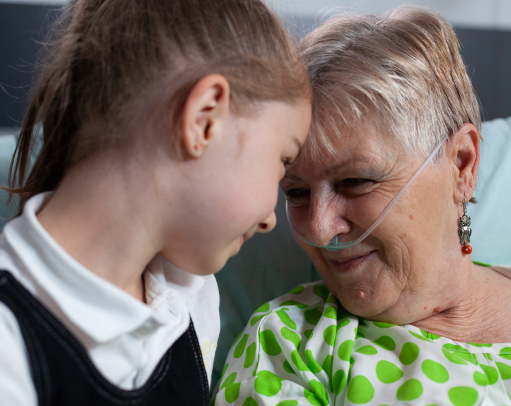In this scenario, our specialist home carers may decide to take a multidisciplinary approach to their care. This may include a nurse who visits regularly to manage their pain and administer medications. The team will monitor symptoms such as breathlessness and fatigue, adjusting treatment plans, as necessary. They may also provide nutritional advice and collaborate with their oncologist to ensure a consistent treatment plan. Additionally, a social worker may visit regularly to offer counselling for both the individual being cared for and their family to help them cope with the emotional challenges of their diagnosis and to aid the emotional support provided by our carer.
Our care team may educate the family on how to assist with daily tasks and provide guidance and resources for additional support.
Let us now imagine an elderly patient suffering from congestive heart failure and needing comprehensive support. They live alone, but family members are nearby. Let’s assume that the aim of their palliative care provision is to ensure they experience fewer hospital visits and can live independently with a support system in place. The patient wants to maintain a decent quality of life, enjoying hobbies as they have always done and socialising with friends and family.
In this case, our carers may decide that the patient receives palliative care focused on complete support for his heart condition. A specialised nurse may be arranged to visit multiple times a week to monitor things like blood pressure, weight, and symptoms like swelling and shortness of breath. The nurse would collaborate with the patient’s cardiologist to adjust medications and manage his symptoms proactively.
Additional support may come in the form of a physical therapist who visits to help with exercises that improve mobility and breathing capacity. A dietician may be enlisted to assist with meal planning to help the patient stick to a low-sodium diet and maintain his weight for example.
Our assigned care giver can also assist with household tasks, cleaning, medication reminders, and arranging transport to hospital appointments and whatever else may be needed day to day.




